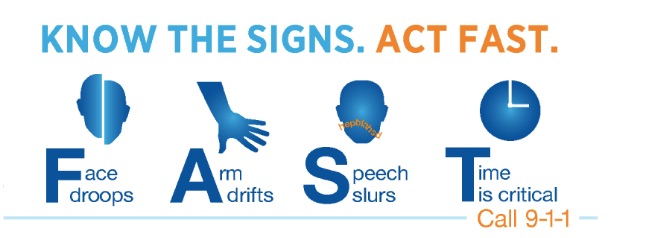
Someone has a stroke every 40 seconds in the United States, according to the U.S. Centers for Disease Control and Prevention. May is Stroke Awareness month, a time when people are encouraged to empower themselves with knowledge surrounding the signs of stroke, reducing the risk of stroke and taking action when stroke occurs.
“It’s a myth that strokes are completely random. There are things you can do to manage your risk factors for stroke including quitting smoking, managing your diabetes, getting moderate exercise, and maintaining a healthy weight. It’s also important to keep your blood pressure within the healthy range, as high blood pressure increases your risk for stroke and several other serious conditions, like a heart attack,” said Joshua Feinstein, MD, FACEP, an emergency physician affiliated with Memorial Hermann Memorial City Medical Center.
The acronym BE FAST can help people quickly recognize common signs of stroke and know when to take action:
“There’s a phrase, ‘time is brain’, meaning the faster you can get treatment for a stroke, the better the chances of recovery,” Dr. Feinstein said.
The neuroscience program at Memorial Hermann Memorial City Medical Center brings together a collaborative group of affiliated fellowship-trained, board-certified neurologists and neurosurgeons supported by a highly trained, specialized and dedicated nursing staff. As a team, they are prepared to treat acute brain, spinal cord and neural conditions, so patients can receive advanced treatment close to home. For more information on neuroscience care, visit neuro.memorialhermann.org.